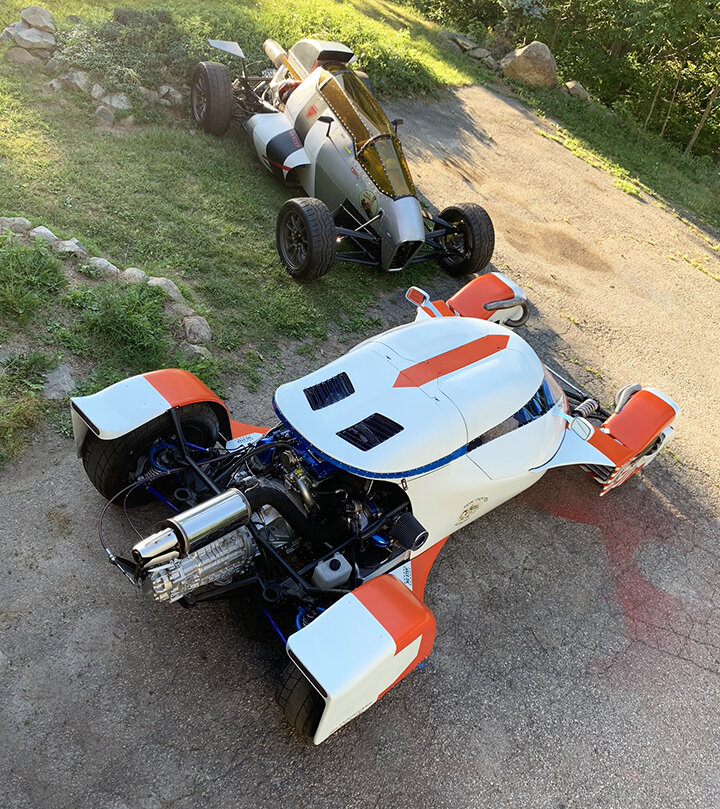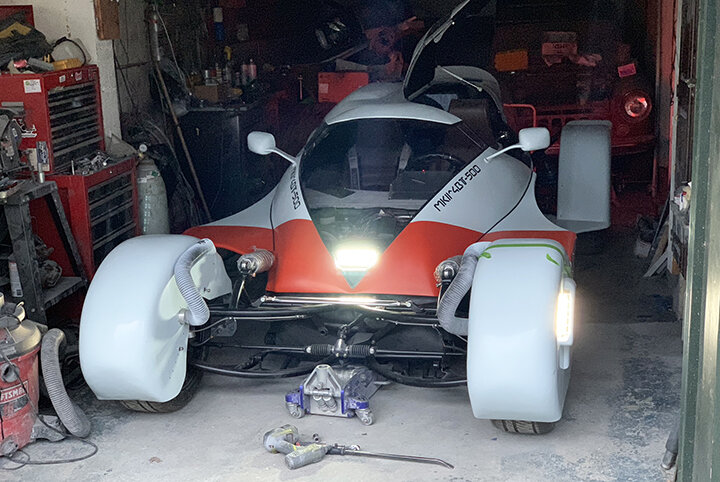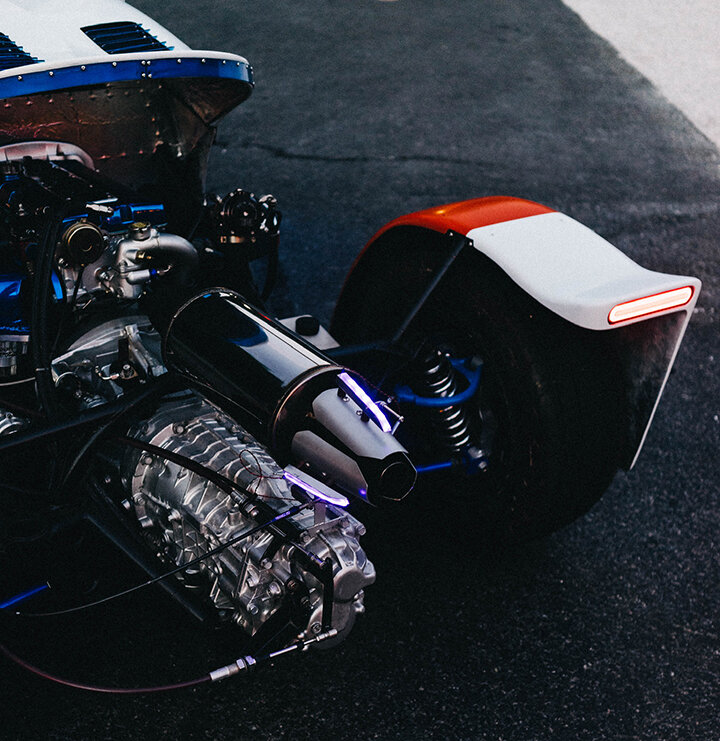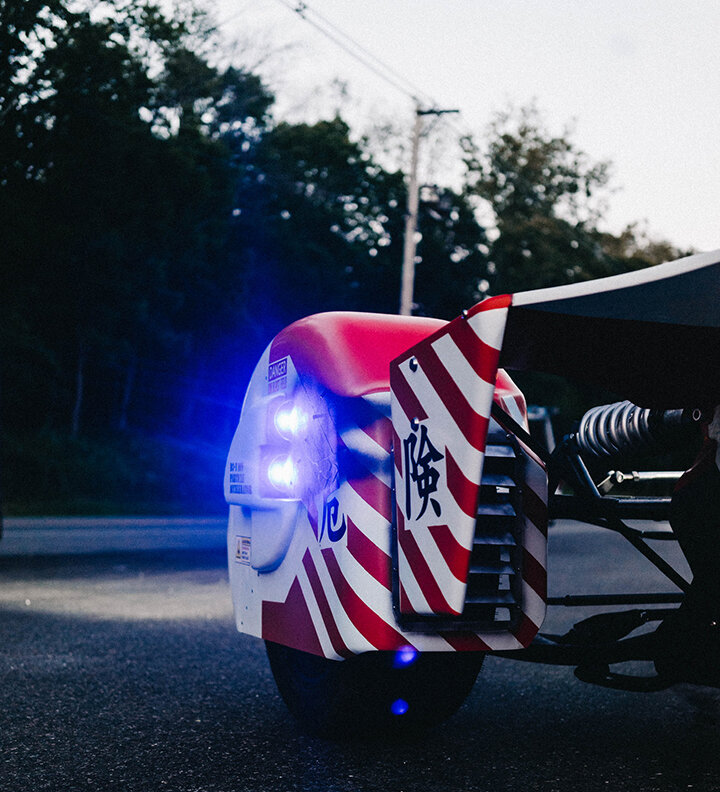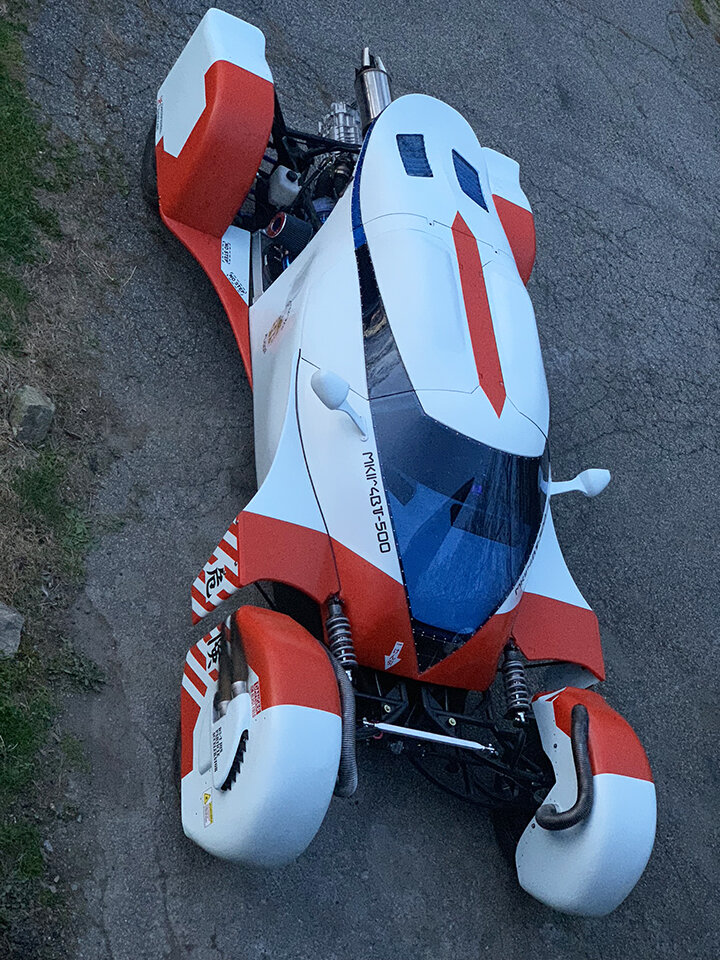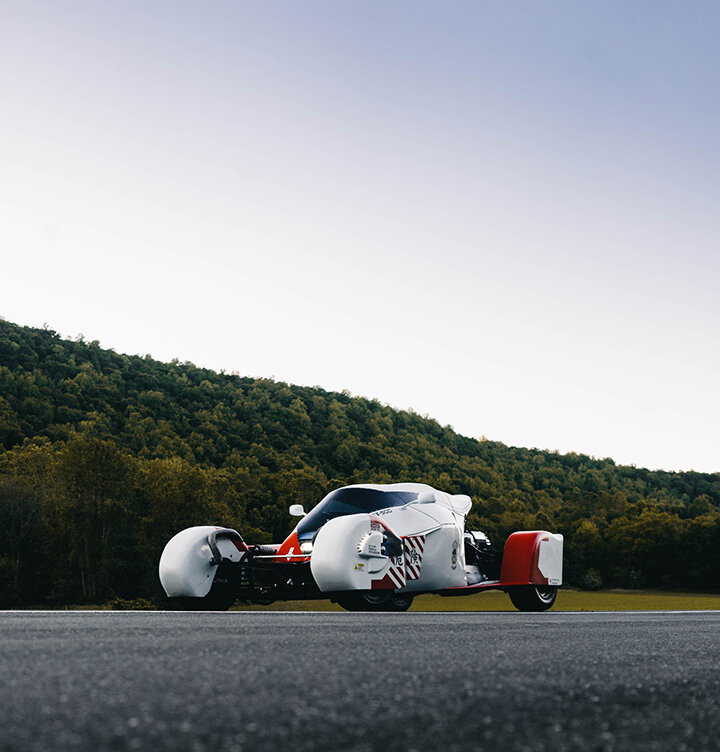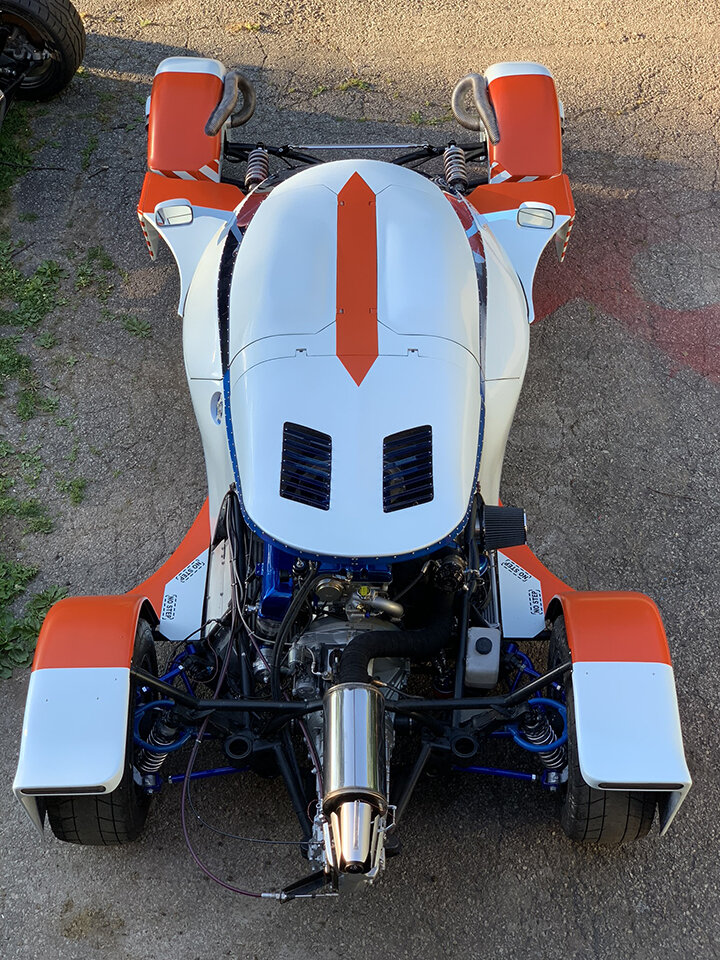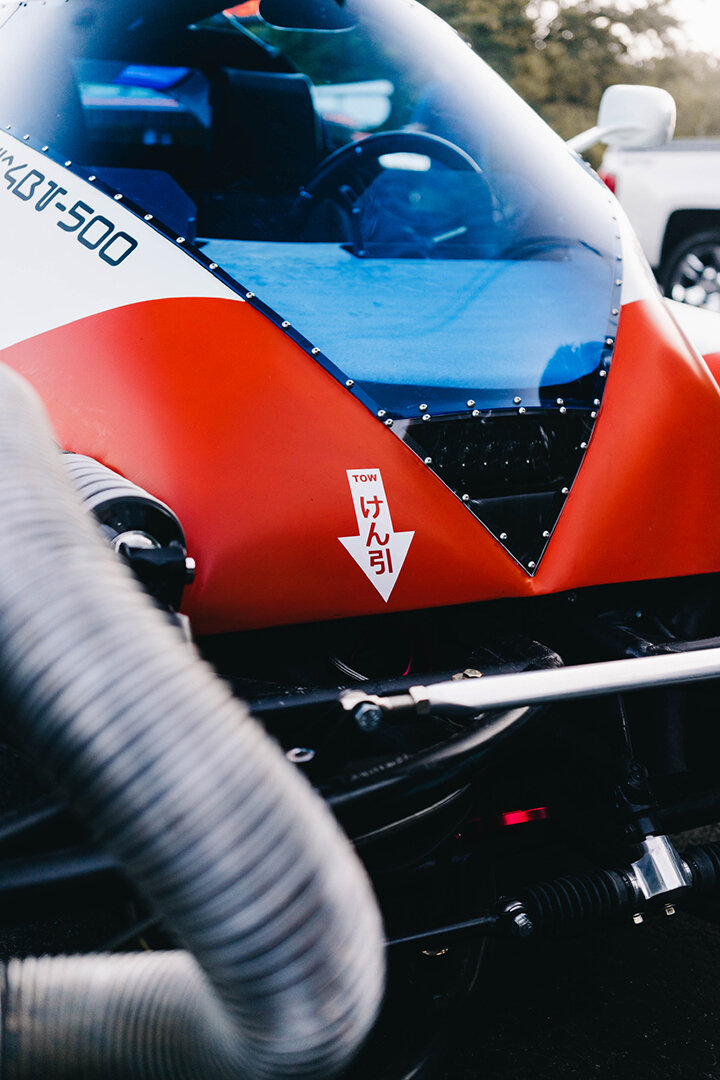the Scorp*Ion from Hot Wheels Legends Tour Winner Luis ‘2JETZ’ Rodriguez Part II: The Car
August 2020 • By Tony Thacker with Luis Rodriguez • Photos by Luis Rodriguez and Jonathan Alicea, Fast Lane Shots, IG @fastlaneshotsIn 2018, Luis Rodriguez won the inaugural Hot Wheels Legends Tour with his radical half-fighter plane, half car ‘2JetZ’ based on an original concept by Dwayne Vance. A couple weeks ago TorqTalk brought you the story on Luis’ latest build ‘theScorp*Ion’ and you can read that here: https://www.torqtalk.com/tech/hot-wheels-legends-tour-winner-luis-2jetz-rodriguez-new-the-scorp-ion-part-1-the-build
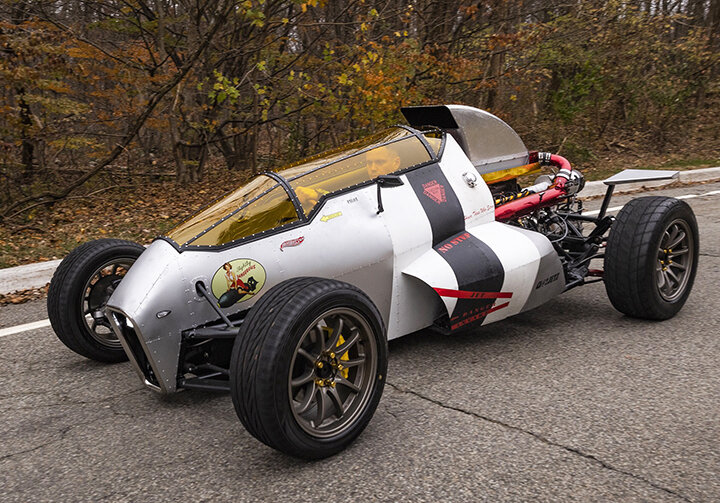
According to Luis, “The Idea behind the Scorp*Ion came from wanting to build something the world had not seen before, something from or for a future that did not yet exist. I wanted to create a hot rod owned by a future gearhead that was at one point modified into some sort of hovercraft or had hover capabilities—integrating sci-fi with cars if you can imagine the possibility. I absolutely did not want to just mod a car but build something that would feel like it fitted into some neon cyber punk future. I always admired vehicles like Kaneda’s bike from the anime movie Akira and Syd Mead’s ‘Spinner’ from the movie Blade Runner.”
Luis works in a tiny, crowded garage that belies the intensity and quality of his builds.
After deciding to build a lightweight, mid-engine, two-seater, Luis studied Citroen 2CV suspension and designed a double slanted, trailing A-arm system employing Nissan 300ZX front hubs and calipers due to their lightweight aluminum construction. The front coil-over shocks are horizontally mounted to keep the weight low and centered. A floating rack-and-pinion mounts to the lower control arms giving the driver positive feedback. It also acts as another stabilizer arm and helped eliminate bump steer. Luis says the car is surprisingly tight and responsive.
Chromoly tube chassis features Citroen-inspired double slanted, trailing A-arm suspension with Nissan 300ZX hubs, a floating steering rack and horizontal coil-over shocks.
Chromoly 4130 tube was used to form the chassis that is mated it to a 300ZX subframe in the rear. Power is derived from a 1990 Mitsubishi Eclipse 4g63 turbo from a GSX mated to a 2010 Subaru Sti six-speed transmission. Luis eliminated the tranny’s output shaft and is using the transmission as a trans axle.
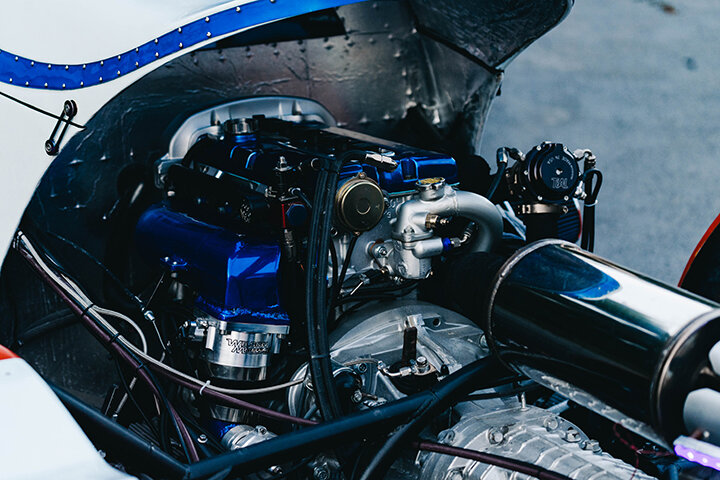
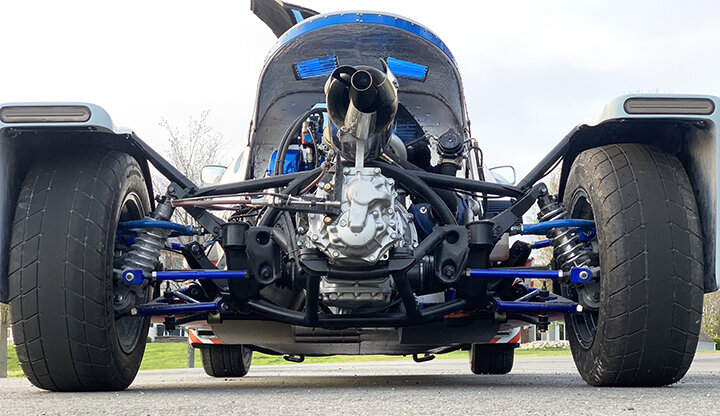
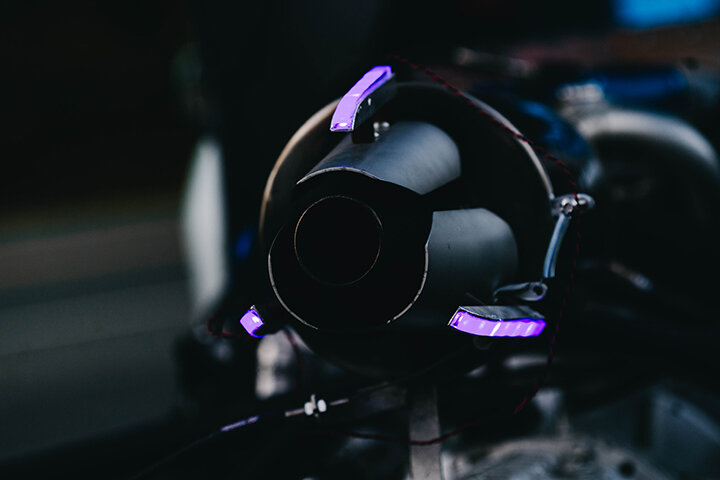
Turbocharged1990 Mitsubishi Eclipse GSX 4g63 is mated to a 2010 Subaru Sti six-speed transmission.
With the frame and powertrain resolved, Luis shifted focus and concentrated on designing the body and creating a car that no one had ever seen. He used welding rod taped together to create the 3D form and once the form was determined he finalized the tube frame chassis and began bonding on the Styrofoam. He then sculpted the body and hand laid the carbon fiber in layers focusing on building the body in segments ensuring parts and panels were easily removable and serviceable.
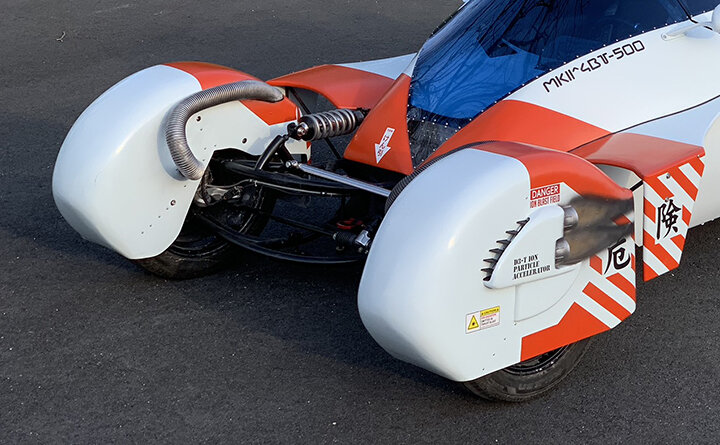
The front fenders were designed to appear as if they were retrofitted from a hovercraft or modified form of propulsion. They were sculpted from Styrofoam before the carbon was hand laid. To vent trapped air, Luis installed a 2.5-inch shop vac hose that siphons the high pressure air at the top of the tire and redirects it to cool the back of the caliper. The ‘ion nozzles’ on the side are actually rattle spray can tops cut in half and finished with decals and paint for the scorched areas.
For the interior Luis began with a pair of bartered leather seats from a 1970 Porsche 914. He set them as low as possible and then worked on what the rest of the interior would look like. He placed the shifter on the left since that would simplify the design and allow for more space in the center to keep the waist of the car narrow giving it that classic Coke-bottle shape.
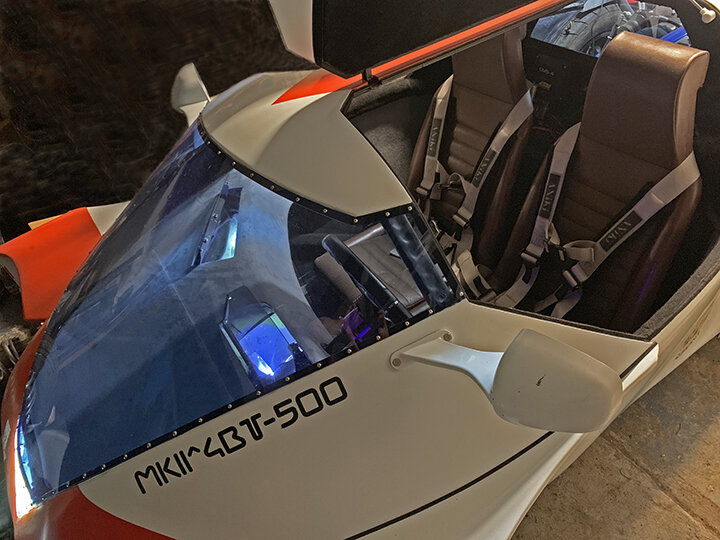
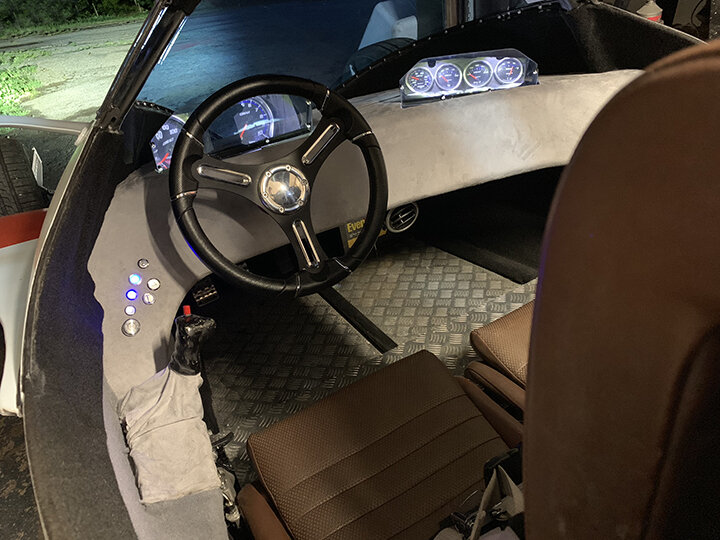
Knowing he wanted the dash to be simple, ergonomic and wrap around both the driver and passenger, Luis carved an asymmetrical dash out of Styrofoam, laid carbon fiber over it and wrapped it with micro suede. It affords the impression of an alien cockpit. Not wanting the gauges to be visible, Luis mounted the Autometer Cobalt gauges behind the dash and used their reflections to create a heads-up display. The outside mirrors are carbon items from a Ferrari 458 GT racecar.
Like everything else on this build, Luis handled the paint himself choosing flat white to make the blue glass pop. He also incorporated orange highlights inspired by the plasma rifle in District 9.
There’s no denying Luis’ build is radically different and he summed it up saying, “It’s my dream and vision of the future. I just hope that my design inspires others to go and fabricate their own reality by building one dream at a time.”
Vehicle: the Scorp*Ion - custom built one off
Owner/builder: Luis Rodriguez
Powertrain
• Engine: 1990 Mitsubishi Eclipse GSX 4g63 turbo. ARP main cap bolts and head studs
• Turbo: Precision 6062, Tial blow-off valve and MVR wastegate
• Performance goal: 500 hp on 93-octane pump gas
• Crank pulley: ATI Dampened
• Crank pickup: Kiggley 12 tooth
• Flywheel: Aasco
• Clutch: Act
• Timing belt: Kevlar
• Pistons: Wiseco
• Rods: Manley
• Cams: Crower 272
• Valves: Ferrara
• Ignition: 300 m coil-on plug
• Engine management: AEM EMS4


